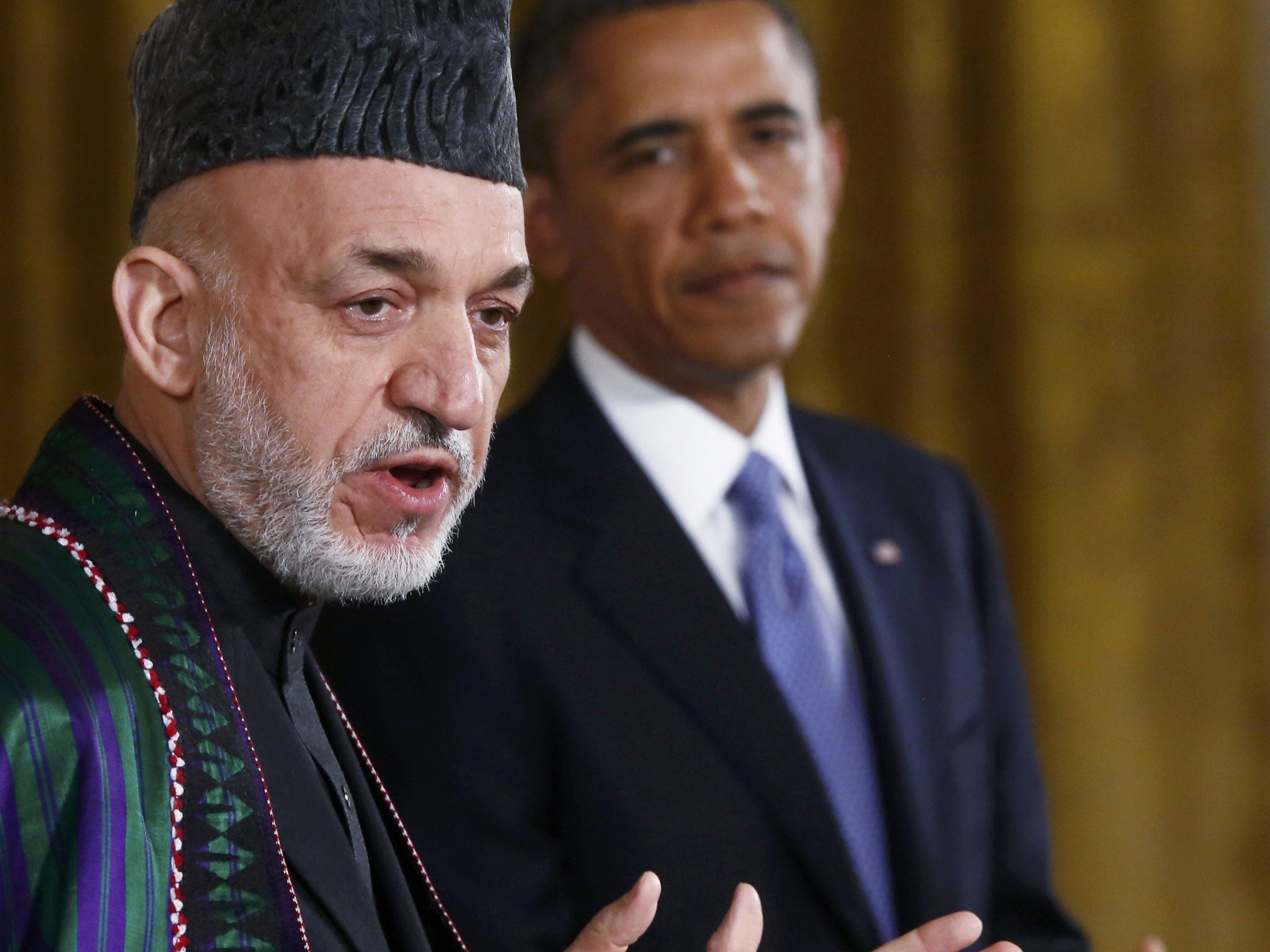Afghanistan: Can Isaf purge its rising enemy within?
Insider attacks on British troops accounted for 14 of 44 casualties last year, and they show no sign of abating

Your support helps us to tell the story
From reproductive rights to climate change to Big Tech, The Independent is on the ground when the story is developing. Whether it's investigating the financials of Elon Musk's pro-Trump PAC or producing our latest documentary, 'The A Word', which shines a light on the American women fighting for reproductive rights, we know how important it is to parse out the facts from the messaging.
At such a critical moment in US history, we need reporters on the ground. Your donation allows us to keep sending journalists to speak to both sides of the story.
The Independent is trusted by Americans across the entire political spectrum. And unlike many other quality news outlets, we choose not to lock Americans out of our reporting and analysis with paywalls. We believe quality journalism should be available to everyone, paid for by those who can afford it.
Your support makes all the difference.A major purge of what is being described as the "enemy within" is under way in Afghanistan as the number of insider attacks on British troops grows to record levels and the Foreign Office admits they cannot be stopped.
An analysis of casualties, including figures obtained from the Ministry of Defence, reveals the proportion of British soldiers killed in "green-on-blue" attacks soared from one in 46 in 2011 to almost one in three in 2012 – accounting for 14 of the 44 soldiers killed last year. Nearly 40 British soldiers have been killed or wounded in such attacks in the past four years, and the trend shows no sign of slowing.
Sapper Richard Walker, 23, of 28 Engineer Regiment was the latest victim when he was gunned down by an Afghan soldier in a base in Helmand province last Monday.
The tactic, being used by the Taliban with increasing effectiveness, is part of a co-ordinated assault against the International Security Assistance Force (Isaf).
One in seven coalition deaths were due to insider attacks last year – up from one in 50 in 2010. There have been more than 70 attacks in the past five years – resulting in more than 260 coalition dead or wounded, according to the US website the Long War Journal. The surge in attacks comes less than two years before troops are due to leave their combat role in Afghanistan at the end of 2014 – a deadline based on the assumption that the Afghan army and police will be able to take care of the country's security.
And the rush to leave Afghanistan has prompted the US to bring forward the timetable for pulling out its combat troops. President Barack Obama claimed on Friday that Afghan security forces are "stepping up" more quickly than anticipated and will be able to take the lead on security in the spring. Speaking after a meeting with the Afghan President, Hamid Karzai, he pledged the war would come to a "responsible" conclusion by the end of 2014.
Meanwhile, insider attacks are having a devastating impact on morale, as well as the trust needed to partner and mentor Afghan forces. Within the past six months Isaf soldiers have been ordered to carry loaded weapons at all times. Vetting has been stepped up. And armed minders, dubbed "guardian angels", routinely keep watch as Isaf mentors train Afghan security personnel.
More than 400 Afghan soldiers or police with suspected links to the Taliban have been arrested in recent months. The entire Afghan local police force, more than 16,000 officers, is being re-vetted – with almost 500 counter-intelligence agents being embedded into the force "to identify possible infiltration by the enemy".
And while there is "no hard evidence", the report warns: "There may be a correlation in attacks inspiring one another. Seventeen events in 2012 occurred within 48 hours of a previous attack."
Afghan religious and cultural affairs officers are screening soldiers returning from leave for signs of radicalisation, and could be used "to support Nato pre-deployment training" in an attempt to prevent those attacks sparked by cultural or religious differences.
And random screening – using lie detectors to weed out insurgents – is being considered by Isaf, says the report.
Yet for all the measures being taken, British soldiers will continue to die at the hands of their Afghan colleagues. In its latest update on Afghanistan, released in December, the Foreign Office admits: "We cannot eradicate the threat" and that partnering with the Afghans "cannot be without risk".
Colonel Richard Kemp, former commander of British forces in Afghanistan, described the attacks as "a lethal tactic of the insurgency [operating] in the same way as the roadside bomb or the suicide attack", and said British soldiers are under massive pressure with "very little time to be off their guard at all".
Join our commenting forum
Join thought-provoking conversations, follow other Independent readers and see their replies
Comments